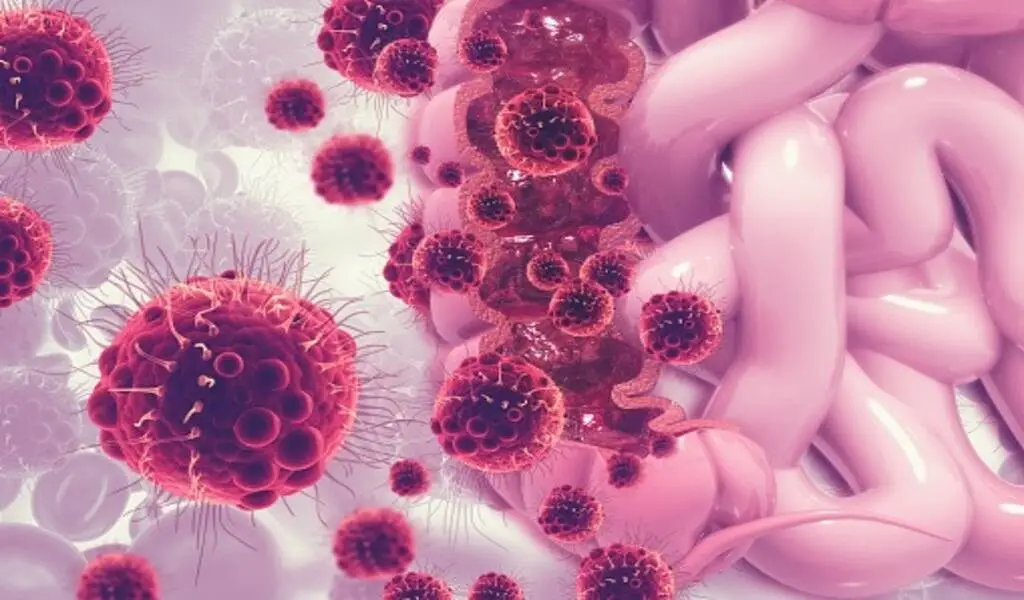An extremely important part of treating colon cancer is to understand the symptoms associated with it, as early detection can provide you with significant improvement in the outcome of the disease. Colorectal cancer, also known as bowel cancer or colon cancer, is a form of cancer that originates in the rectum or colon.
Colorectal Cancer: An Overview
As a group, colorectal cancer includes both colon and rectal cancers and is ranked among the most common cancers worldwide, owing to factors such as age, family history, and certain lifestyle choices.
Early Detection and Diagnosis
It is imperative to detect colorectal cancer at an early stage to ensure successful treatment. A number of screening methods are recommended for individuals over a certain age or with specific risk factors for colorectal cancer, including colonoscopies and stool tests.
Common Colorectal Cancer Symptoms
- Digestive Changes
Changes in bowel habits, like diarrhea or constipation
Discomfort in the abdomen
- Unexplained Weight Loss
Diet and exercise don’t explain weight loss
An indicator of advanced cancer
-
Blood in Stool
Dark stools or visible blood
Need medical attention urgently
-
Fatigue and Weakness
Fatigue that’s not related to activity
Feeling weak and sluggish
Perplexity of Symptoms
The symptoms of colorectal cancer can often overlap with those of other gastro-intestinal disorders, confusing. Therefore, you must consult a healthcare professional to get an accurate diagnosis.
Burstiness of Symptoms
Colorectal cancer symptoms may present suddenly and intensify rapidly in some cases, so it is important to recognize the sudden onset of symptoms and seek medical care as soon as possible.
Specificity in Symptom Identification
The ability to recognize the specific characteristics of each symptom is vital for early diagnosis. Let’s take a closer look at each symptom in order to clarify things for our readers.
Digestive Changes
Some people may experience changes in their bowel habits, such as diarrhoea or constipation persists for a long period, as well as abdominal discomfort, cramps, or bloating as a result of these changes.
Unexplained Weight Loss
The loss of significant weight without an apparent cause is a concerning symptom. It can be an indication of advanced stages of colorectal cancer, emphasizing the need for medical consultation.
Blood in Stool
When blood is visible in the stool or the stool is dark in color, it is indicative of colorectal bleeding. It is essential to seek medical attention as soon as possible if you notice this symptom.
Fatigue and Weakness
If you are experiencing persistent fatigue without a physical cause, along with weakness and lethargy, there is a possibility that you may be experiencing an underlying health problem, such as colorectal cancer.
Contextual Understanding of Symptoms
Depending on the individual health history and risk factors, symptoms may differ from person to person, which calls for a contextual understanding of each individual’s symptoms.
Importance of Regular Check-ups
There is no doubt that routine screenings and regular health check-ups play a vital role in the early detection of colorectal cancer. Monitoring any changes in bowel habits and seeking prompt medical advice are two important ways to avoid developing the disease.
Prevention Strategies
It has been found that adopting a healthy lifestyle, including a balanced diet and regular physical activity, can significantly reduce the risk of colorectal cancer. Furthermore, avoiding tobacco smoke and consuming alcohol in moderation also helps prevent the disease.
Treatment Options
A diagnosis of colorectal cancer can be treated with a variety of treatment options, including surgery, chemotherapy, and radiation therapy, and advancements in medical science are continuing to improve the outlook for those with the disease.
Supportive Care and Coping Mechanisms
A diagnosis of colorectal cancer can be an emotionally challenging time for individuals and their families. Find support from healthcare professionals, support groups, and loved ones. It is important to ensure your emotional well-being throughout the entire treatment process.
Awareness Campaigns and Initiatives
We must spread awareness of colorectal cancer so that early detection and prevention are possible. Participate in community initiatives, share information on social media, and participate in awareness campaigns in order to contribute to fighting this disease as a whole.
Myths and Facts about Colorectal Cancer
Myth: Only Older Individuals Are at Risk
-
Fact: Colorectal cancer can affect people of any age, so being aware and early is important.
Myth: Colorectal Cancer Is Not Preventable
-
Fact: Even though it’s not completely preventable, lifestyle changes and regular screenings can greatly reduce your risk.
Myth: Symptoms Are Always Noticeable
-
Fact: Some symptoms can be subtle or misinterpreted as something else, so get checked regularly.
Myth: Only Unhealthy Lifestyles Contribute to Colorectal Cancer
-
Fact: Besides lifestyle choices, genetics and family history play a role in determining risk.
Conclusion
To detect colorectal cancer early and treat it effectively, you should understand its symptoms. Regular check-ups, lifestyle changes, and awareness campaigns help prevent colorectal cancer. Don’t ignore symptoms; prioritize your health, and talk to your doctor.

